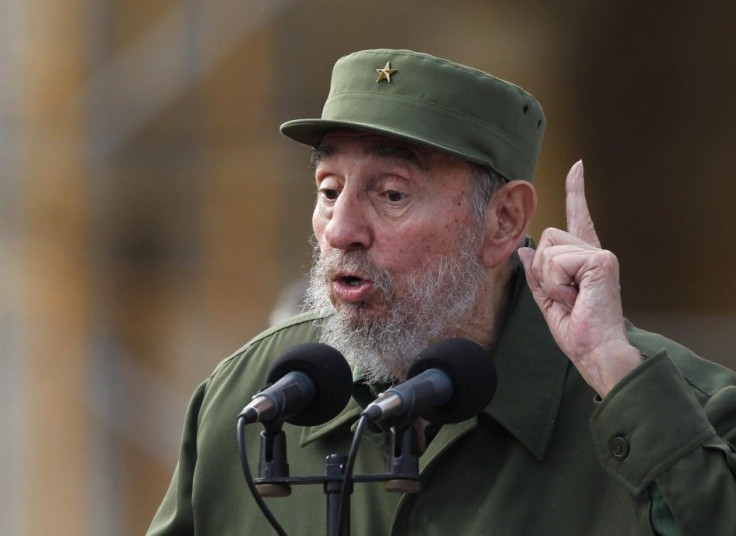Photos, Letter From Fidel Castro: A New Attempt To Dispel Ill-Health Rumors

Former Cuban President Fidel Castro has published a new letter and a series of photographs to dispel recent rumors that he is on his deathbed.
“I don’t even remember what a headache feels like,” he wrote in a Monday article for Cubadebate, a state-run media outlet.
It was alleged last week that Castro, 86, had suffered a debilitating stroke and was in a vegetative state. The claims were made by Jose Rafael Marquina, a Venezuelan doctor who says he learned of Castro’s illness from Venezuelan sources he refused to name. ABC, a Spanish newspaper, published the story.
Marquina made a similar claim in April, when he reported that Fidel’s close friend and ally, Venezuelan President Hugo Chavez, was seriously and terminally ill. But Chavez, who won a new presidential election this month, appears to have recovered well after being diagnosed with cancer last year.
Fidel handed power over to his brother Raul in 2006, but his legacy still looms large over Cuban politics and society. Lately, however, an unprecedented absence from the public sphere has heightened suspicions about his failing health. Fidel’s public appearances are at a minimum, and the opinion articles he once disseminated frequently via state media have become far less frequent.
Following the allegations made by Marquina, new reports surfaced that Fidel actually met with a Venezuelan official in Havana this weekend. A Cuban hotel manager named Antonio Martinez Rodriguez told Reuters that he had seen the former president there, though his claim was not backed up by other observers.
“Yes, he was here yesterday, the same old Fidel with his beard and pink cheeks. He was fine,” said Martinez.
The Monday letter allegedly written by Castro in Cubadebate, along with the series of photographs, marks another attempt by the administration to confirm that the former president is still functioning normally.
The letter draws on historical themes, positing a link between Marquina’s “lies” and a pattern of alleged media manipulation that occurred half a century ago during the Cuban Missile Crisis of 1962, when the United States came to the brink of war with the Soviet Union over a nuclear weapons site in Cuba.
Castro ends the letter with an explanation: “I stopped writing reflections because it is certainly not my role to occupy the pages of our newspaper, which is devoted to matters of greater importance to our country.”
The nine photographs show Castro in track pants and a button-down shirt, looking alert as he walks through a garden with the assistance of a cane. In two of the shots, he is holding the Friday edition of Granma, Cuba’s official Communist Party newspaper.
© Copyright IBTimes 2024. All rights reserved.












